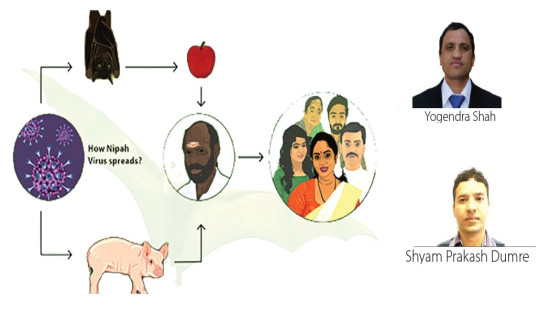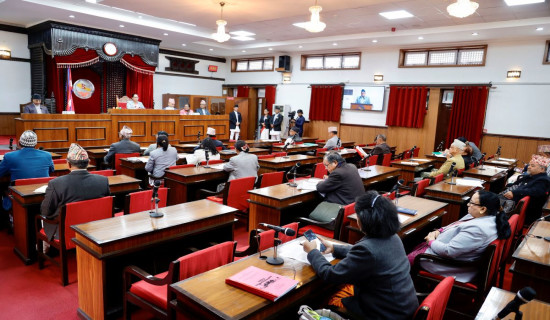- Friday, 6 February 2026
59thAnniversary Special Supplement
Citizen Journalism Vs Traditional Media
In his video posted on X (previously Twitter) on October 27, 2024, Elon Musk said citizen journalism is the future. Supporting the role of social media, the American billionaire added, “The aggregate voice of the people gets to decide the narrative of what is newsworthy, not a handful of editors-in-chief.” Musk, who is himself the owner of X, has defended the social media as the real generators of news and ideas and challenged the authenticity of traditional media—the newspapers, radios, and televisions.
His opinions reflect the media scenario of the US that boasts of a rich tradition of journalism. Free press, freedom of speech, human rights, and a liberal economy are what define American democracy. Ironically, the business tycoons hold sway over the media industry where structural biasness is entrenched. This may be the reason only 31 per cent American people have a “fair amount” of confidence in the media to report the news “fully, accurately, and fairly.”
Domination broken
Social and digital media outlets have broken the domination of traditional media to a big extent. The rise of social media such as Facebook, YouTube, TikTok, and X has brought a seismic change to the media landscape. They have democratised the media realm and empowered commoners to have their own media with the help of the internet. They can create content and broadcast it whenever and wherever they like. The speed with which the information and ideas are circulated through social media and the amount of feedback they draw is astonishing. Not only have the media sector, but even politics, the economy, and culture have undergone a dramatic shift due to the social media-driven information revolution.
The notion of ‘citizen journalism’ Musk has raised is not new, but he is talking about it at a time when people’s faith in the traditional media has awfully eroded worldwide. The concept of citizen journalism evolved more than two decades ago in an open revolt against the traditional press influenced by commercial and partisan interests or controlled by the government bodies.
Oh Yeon-ho, a Korean online entrepreneur, is considered a pioneer of citizen journalism. In 2000, fed up with the Korean press, he and his friends launched an online paper and deployed volunteers to produce content. In the beginning, it had 727 citizen reporters, and by 2007 their number crossed 50,000, active in over 100 countries. Oh argues that every citizen is a reporter. However, information and news sent by citizen reporters might not be as accurate as those of professional journalists. Yet, citizen journalism has drastically changed the people's perception of media—how it functions and what impact it generates.
This may be a reason why Musk said, “You are the media,” referring to Twitter users. “I encourage everyone to write on X.” Social media outlets shape society as much as they can damage it in the same amount. Yet, social media is not free from controversy. Misinformation, disinformation, and fake news have led to the erosion of its authenticity and quality.
In Le Monde, media historian David Colon writes that Twitter is the digital equivalent of the "bourgeois public sphere" as described by Habermas, an immaterial place where the public use of reason is erected as a counter-power. Musk 'embodies the new dynamic between influencers, algorithms, and digital crowds,' claims Colon.
Of course, Musk might have his own business agenda that might not have gone well with the mainstream corporate media in the US. Nonetheless, the digital and social media have posed a real threat to corporate media outlets that thrive on a shoddy nexus with business and politics. They are also blamed for hiding or suppressing those voices that upset the internal power status quo and external geopolitical interest.
Amidst this changing scenario, The Rising Nepal is marking its Diamond Jubilee year today (December 16, 2024), with an added responsibility to the readers, well-wishers, and advertisers.
The country’s first broadsheet English daily has witnessed many ups and downs during its six-decade-long service to the people and nation. As a public media, it smoothly sailed for six decades. It is in itself a grand feat that rival publication houses may envy.
However, this remarkable journey does not mean that it rests on its glorious past. It has to move on to something new, which enables it to address the emerging challenges. Most visibly, it needs to batten down the hatches to stay afloat in the media sphere where, as said earlier, the digital and social media have taken by storm.
Original mission
TRN was launched at a time when the Cold War was at its peak. Its debut-making editorial, ‘About Ourselves,’ has clearly outlined its vision and objectives. Expressing commitment to the ideals of the United Nations, it reads: “As we are interested in resurgence and not in ideologies, we watch with equal interest and sympathy the progress made by countries with different political systems." Its original mission is still valid because Nepal has gained undue geopolitical traction, forcing it to walk a tightrope. So it continues with its prime duty of projecting the nation’s independent image, safeguarding its interests, and providing an unvarnished viewpoint to a larger readership—national and global.
But this glowing historical legacy is not enough to live in the present. It requires being innovative so as to live up to the expectations of the common readers who might have come under the influence of citizen journalism. TRN could not do more on political reporting. Publishing critical news and views about the ruling political establishment is beyond consideration.
It can explore avenues in the social, cultural, and glamour sectors. In-depth and unbiased reports and feature stories on social subjects appeal to a wide range of readers.
Team spirit and management's support are crucial for these tasks. Adequate human resources and motivation are equally important to revamping the newsroom.
TRN Day offers us a moment to reflect on its strengths and shortcomings and move ahead with renewed commitment and vigour.
Let’s put our best foot forward to burnish TRN’s cherished credibility as a media outlet that disseminates accurate and authentic information and opinion to the readers.
(The author is the Deputy Executive Editor of this daily.)

















